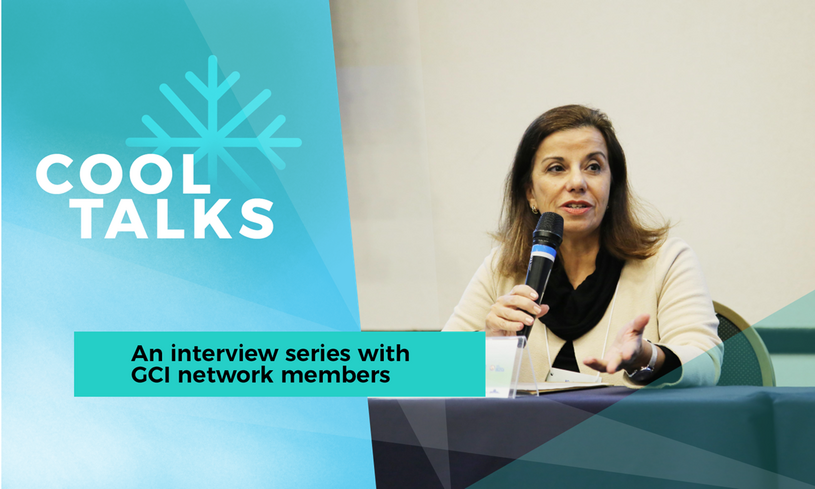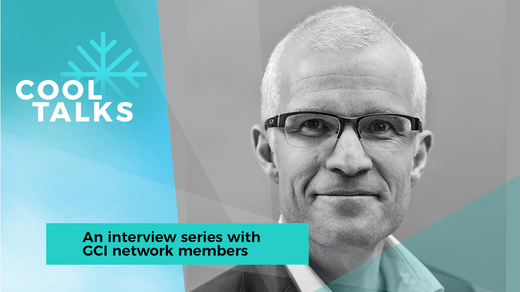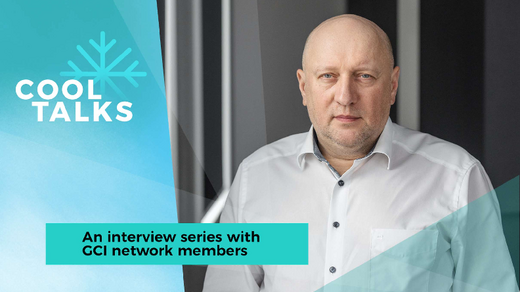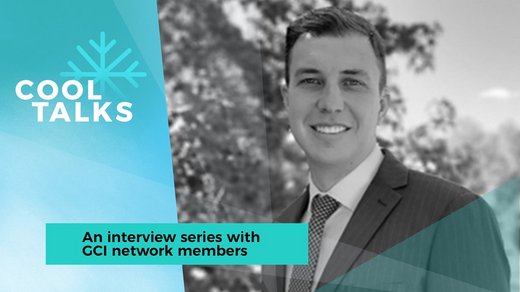For this Cool Talk, we had the opportunity to interview Magna Luduvice, Environmental Analyst with 13 years of experience as Head of the National Ozone Unit (NOU) at the Brazilian Ministry of Environment and Climate Change (MMA). She played a key leadership role in the actions under the Montreal Protocol in Brazil, including the HPMP Project, which represented a direct impact in the ozone layer preservation.
PLEASE TALK ABOUT YOUR CAREER FROM THE BEGINNING UNTIL YOUR ARRIVAL AT THE BRAZILIAN MINISTRY OF ENVIRONMENT AND CLIMATE CHANGE (MMA).
In December 1982, I completed my degree in forestry engineering at the University of Brasília – UnB, and in March 1983, I started my professional life at the former Special Secretariat for the Environment (SEMA), under the leadership of Dr. Paulo Nogueira Neto. At that time, I was working with the green agenda, more specifically with the creation and installation of Conservation Units.
Then, from 1986 to 1990 - when there was that boom in engineering companies in the country- I went to the private sector as head of the vegetation section of the Environment Department of the engineering company ENGEVIX S.A., being responsible for the identification and maintenance of vegetation around the Tucuruí Hydroelectric Power Plant in Pará, providing services to Eletronorte.
Subsequently, SEMA, IBDF (Timber), SUDHEVEA (Rubber) and SUDEPE (Fisheries) were merged and became IBAMA. In 1990, I went to IBAMA to work on forest fires in PREVFOGO, where I worked until 1994. Then, I went to the Ministry of the Environment. Until then, I had been working entirely in the forestry area and on the green agenda.
From 1994 to 2005, I worked as a specialist consultant in the National Environment Programme (PNMA), supporting the Brazilian federal states on issues related to river water quality.
In 2005, realising that it was time to have more professional security, I took the first public examination for the position of environmental analyst at the Ministry of the Environment. As I had already worked for many years at the MMA, I was invited to take over the issues related to the protection of the ozone layer, as coordinator.
It was a huge surprise... I accepted the invitation because I really liked the international field and project management. It was a great opportunity, I was aware of the immense challenges I would face as at that time I had only a superficial knowledge of the subject, knowledge acquired from colleagues who worked in the area. It was very difficult at first, but very rewarding for the lessons learnt (the Montreal Protocol targets, the refrigeration sector in Brazil, etc.).
I fell in love with the topic and never wanted to leave. From 2005 to 2018, I coordinated Brazilian actions to protect the ozone layer. I kept my knowledge up to date. From 2019 to 2022, I was part of the technical team. At the beginning of 2023, I retired as I thought it was time to take another direction in life.
YOU HAVE PLAYED A KEY LEADERSHIP ROLE IN ALL ACTIONS UNDER THE MONTREAL PROTOCOL IN BRAZIL, INCLUDING the HPMP, WHICH IS CURRENTLY BEING IMPLEMENTED. PLEASE TALK ABOUT THIS PROGRAMME AND THE MAIN INITIATIVES YOU LED DURING YOUR 13 YEARS AS THE HEAD OF THE NATIONAL OZONE UNIT (NOU) AT THE MMA?
As the phase-out targets for CFCs by developing countries approached completion (scheduled for 2010), the Parties to the Montreal Protocol considered it appropriate to bring forward the same phase-out schedule for HCFCs, which have emerged as alternative substances to CFCs. This was also due to their detrimental effect on the ozone layer and the climate.
In 2007, in celebration of the Protocol’s 20th anniversary, the Adjustment to the Protocol was approved, establishing a new HCFC phase-out schedule for developing countries. The Brazilian delegation actively participated in the discussions related to the adjustment, including presenting, together with Argentina, one of the six proposals for the Adjustment schedule, which led to the final outcome.
At the time, I was part of the Brazilian delegation, in the MMA team, responsible for providing technical support to the Ministry of Foreign Affairs, which led the delegation. The minister of the environment that year was the current minister, Marina Silva.
The Montreal Protocol is supported by the Multilateral Fund for the Implementation of the Montreal Protocol (MLF), to which developed countries provide resources to support developing countries in meeting their targets. At the time, funding was made available, and each country had to design its programme to meet its targets.
Thus, the Brazilian HCFC Phase-out Management Plan (HPMP) was established, with the support of the private sector. Since then, the MMA has coordinated the implementation of the programme, which is being carried out in stages, and IBAMA is responsible for controlling the import and export of these substances, which will generate the country’s consumption data, clarifying that consumption is production plus imports, minus exports. This calculation is presented annually to the Secretariat of the Montreal Protocol to control the reduction of consumption, that is, how the country is meeting its targets. The first stage aimed to fulfil the freeze and the first consumption reduction target by 2015 (16.6%); and the second stage was to achieve the targets by 2021 (51.6%).
All the work of implementing the HPMP is supported by GIZ, UNDP and UNIDO. The partnership built over all these years was fundamental to the success achieved by Brazil in meeting the targets set by the Montreal Protocol.
Currently, the third stage is being prepared and will be implemented by 2030, with the commitment to reduce 97.5% of HCFC consumption compared to the baseline (average consumption for the years 2009-2010). Each stage was negotiated by Brazil with the Executive Committee of the Multilateral Fund, and with this we obtained the financial support to fulfil the targets.
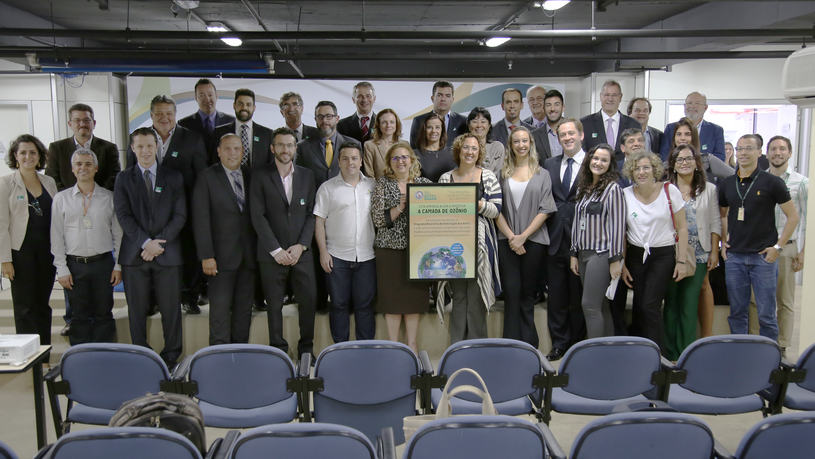
SEVERAL PARTNERSHIPS BETWEEN THE MMA AND THE PRIVATE SECTOR HAVE TAKEN PLACE UNDER YOUR COORDINATION. PLEASE TALK ABOUT THE IMPORTANCE OF THESE PARTNERSHIPS.
The private sector has always been very engaged in this successful partnership, as Brazil has always anticipated the fulfilment of the goals. The refrigeration and air conditioning sector has followed society’s concern with the protection of the ozone layer and the global climate system, contributing to the sustainability of the planet by replacing refrigerants with other materials that are less harmful to the environment.
The use of natural refrigerants, wherever possible, is the most suitable alternative for achieving long-term sustainability. It is the ultimate alternative, while others are intermediate alternatives with low global warming potential.
In this context, labour is a determining factor, because we need a cultural change for better use of flammable refrigerants. The HPMP supports this whole process, including training the workforce in these new technologies. Without skilled labour to make the necessary changes, it is not possible to move forward.
DURING ALL THESE YEARS WORKING ON PROJECTS FOR THE PROTECTION OF THE OZONE LAYER AND THE CLIMATE, YOU HAVE CERTAINLY BEEN ABLE TO ACCUMULATE AN ENORMOUS WEALTH OF EXPERIENCE. PLEASE NAME ONE OR TWO OF THE MOST REWARDING EXPERIENCES OF YOUR CAREER?
The experiences I had during all these years, including being able to represent Brazil, as part of the delegation, in many meetings abroad, were enriching and rewarding. In this work, we met many people and exchanged ideas with professionals from all over the world, but especially with those from the delegations of our region, Latin America, and the Caribbean, in which we managed to create a very close-knit group.
The seventeen years in which I participated, together with the Ministry of Foreign Affairs, in all the discussions that resulted in the decisions taken under the Montreal Protocol were truly rewarding, in particular, the approval of the Adjustment that established the new HCFC phase-out schedule and the nine years of negotiation that culminated in the approval of the text of the Kigali Amendment, which included HFCs as substances also controlled by the Protocol. The Amendment was approved in 2016 and it was only in 2022 that we finally achieved Brazil’s ratification.
It is also gratifying to note year by year that all the efforts to implement the HPMP, undertaken by the teams of the MMA, IBAMA, implementing agencies (GIZ, UNDP and UNIDO) and the private sector, resulted in a decrease in the consumption of HCFCs, and Brazil has been commendably meeting the targets set by the Montreal Protocol.
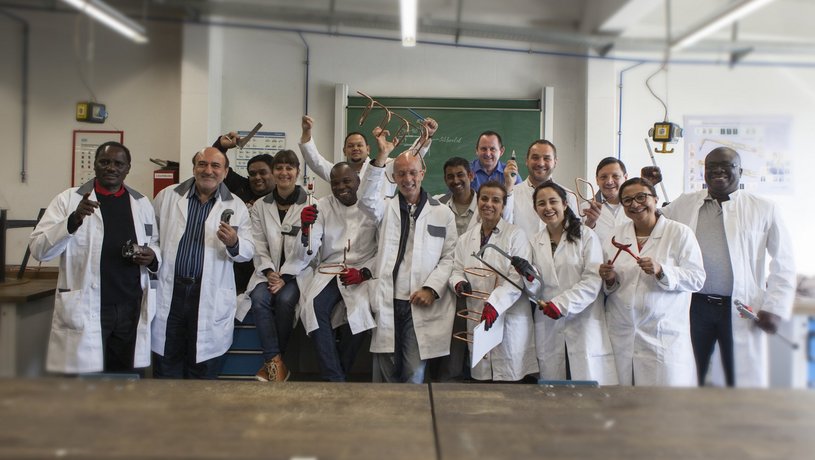
COULD YOU TALK A BIT ABOUT YOUR VISION FOR THE FUTURE OF THE HPMP UNDER NEW LEADERSHIP, IN PARTICULAR ABOUT ACTIONS TO FULFIL THE KIGALI AMENDMENT, WHICH YOU HAVE ALREADY MENTIONED?
The teams that have been formed over the years at the MMA, IBAMA, GIZ, UNDP and UNIDO are fully capable of moving forward and keeping Brazil in compliance with the targets set by the Montreal Protocol. The successes of this Programme are due to teamwork and partnership towards a common goal.
The Kigali Amendment is the apple of our eye. It was a very rewarding endeavour to build and approve it, especially because of all the concerns about the climate, in which the Montreal Protocol could have a very effective participation. It was a development that took nine years, where the countries (198 Parties) were evolving their positions. With this Amendment, the Montreal Protocol continues its work of addressing consumption at sustainable levels.
In order to meet the Kigali Amendment and reduce the consumption of HFCs, Brazil will forthcoming build a Programme, as was done for CFCs and HCFCs, including the establishment of the baseline. The MMA will coordinate the elaboration and implementation with the usual partners.
WHY DO YOU PERSONALLY CARE ABOUT ENVIRONMENTAL ISSUES AND WHAT IMPACT DOES YOUR WORK HAVE ON YOUR PERSONAL LIFE?
From a young age, I identified with environmental issues which culminated in my choice of degree course at university. This interest only increased with time and a deeper understanding of environmental issues. I think I have passed on this love of work, this engagement, and this environmental and social concern to my two daughters, who are great professionals... And also, to the people in the teams I have worked with. I have the feeling that I managed to pass it on…. that I was able to contribute and teach …that I have left a legacy….and that gives me a feeling of a mission accomplished!
My professional life has always meant a lot to me. I have always performed with dedication and pleasure in obtaining the best possible results. Carrying out my work with dedication and commitment has always brought me satisfaction and the desire to make a difference wherever I went. When we dedicate ourselves and enjoy what we do, our whole personal universe flows and becomes more balanced.

